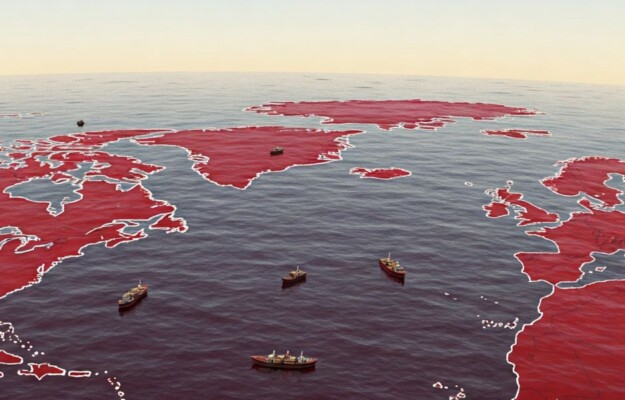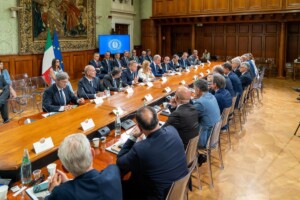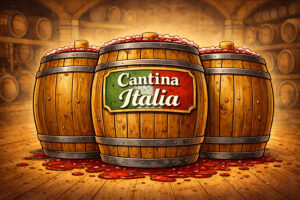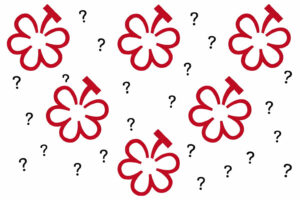While waiting to see what will really happen with the threat of U.S. duties, among those who denounce the first effects with shipments from Europe blocked, those who already cry disaster, and those who preach caution, such as Ice president Matteo Zoppas, and while the EU itself has stalled by postponing for a couple of weeks the entry into force (initially scheduled initially, for April 2) of retaliatory tariffs on U.S. products in response to U.S. duties on EU steel and aluminum, the various producer organizations are hard at work pleading the case for wine between the two sides of the Atlantic, reiterating that no one really likes tariffs and that they would be a detriment to everyone. A chorus that is now joined by the voice of the members of the Wine Origins Alliance, which brings together 34 organizations from 9 countries across Asia, Europe, North America and Oceania (with 100,000 members including vintners and wineries, generating more than a million jobs and $8 billion in wine exports on a global scale), and which in recent days, has written two letters to their respective governments (to the U.S. and the EU Commission, ed.) to say no to the trade diatribe. “Wine is a sustainable product that promotes the economic, social and cultural well-being of people and the planet”, the Woa regions write, “and promotes peace and prosperity, given its role historically in bringing nations together in moments of mutual understanding on an international scale. Wine should unite us, not divide us”.
One of the two letters was addressed precisely to the European Commissioner for Trade, Maroš Šefčovic, signed by wine councils, consortia and associations from 11 wine territories in France, Spain, Italy, Portugal and Hungary (Conseil Interprofessionnel du Vin de Bordeaux, Bureau Interprofessionnel des Vins de Bourgogne, Comité Interprofessionnel du Vin de Champagne, Consorzio Vino Chianti Classico, Syndicat des vins Côtes de Provence, Instituto dos Vinhos do Douro e do Porto, Consejo Regulador del Vino de Jerez, Inter-Rhône, Consejo Regulador de la Denominación de Origen Ribera del Duero, Consejo Regulador de la Denominación de Origen Calificada Rioja, and by the Council of Tokaj Wine Communities), while the other was sent to Ambassador Jamieson Greer, Trade Representative for the United States, and was signed by members from as many as 17 U.S. wine regions in the states of California, New York, Michigan, Washington, Oregon, Missouri, Texas, and Virginia (Finger Lakes Wine Alliance, Leelanau Peninsula Wine Trail, Livermore Valley Winegrowers Association, Long Island Wine Country, Missouri Wine & Grape Board, Monterey County Vintners & Growers Association, Napa Valley Vintners, Old Mission Peninsula Wine Trail, Oregon Wine Board and Oregon Winegrowers Association, Paso Robles Wine Country Alliance, Santa Barbara Vintners, Sonoma County Vintners, Texas Wine Growers, Virginia Wineries Association, Walla Walla Valley Wine Alliance, Washington State Wine Commission and Washington Wine Institute, and Willamette Valley Wineries Association), representing just under 90% of all wineries in the US.
The letters call on “their respective governments to avoid the imposition of tariffs on wine as part of broader trade negotiations on the basis of recent developments”, the Woa website states, “members call on the United States and the European Union to work together, finding common pathways that eliminate or lower tariffs on wine, rather than raising them. While, in both cases, the premise is simple and is that of a clear “opposition to tariffs on wine products, regardless of their region of origin”, on the European side of the Atlantic, Commissioner Šefčovic is asked not to impose tariffs on U.S. wine as a countermeasure to U.S. duties on EU steel and aluminum imports, while Greer is asked to “exclude wine and alcohol products from any future trade action the U.S. might take toward the European Union. The U.S. and EU are the world's leading wine producers, with a collective 2024 export exceeding $28.5 billion in value. The EU market is very important to U.S. wine exporters, and any significant retaliation by the EU against U.S. producers could put them in a critical situation”.
All 28 regions that participated in the drafting of the document add that, despite their competitive relationship within the global wine market, each is favored by fair and free competition, while, in this latest period, the imposition and threat of duties is causing enormous concern and uncertainty for all Woa members, not to mention the fact that these not only harm customers and producers, but also a whole range of figures and businesses related to the wine world including distributors, retailers and restaurateurs. “Especially”, the two letters point out, “the duties would have a disproportionate impact on micro, small and medium-sized companies that, together with the wine regions in which they work, participate in the growth of tourism and affect the economy and employment within related sectors, but not only”.
Copyright © 2000/2025
Contatti: info@winenews.it
Seguici anche su Twitter: @WineNewsIt
Seguici anche su Facebook: @winenewsit
Questo articolo è tratto dall'archivio di WineNews - Tutti i diritti riservati - Copyright © 2000/2025









































































































































































































